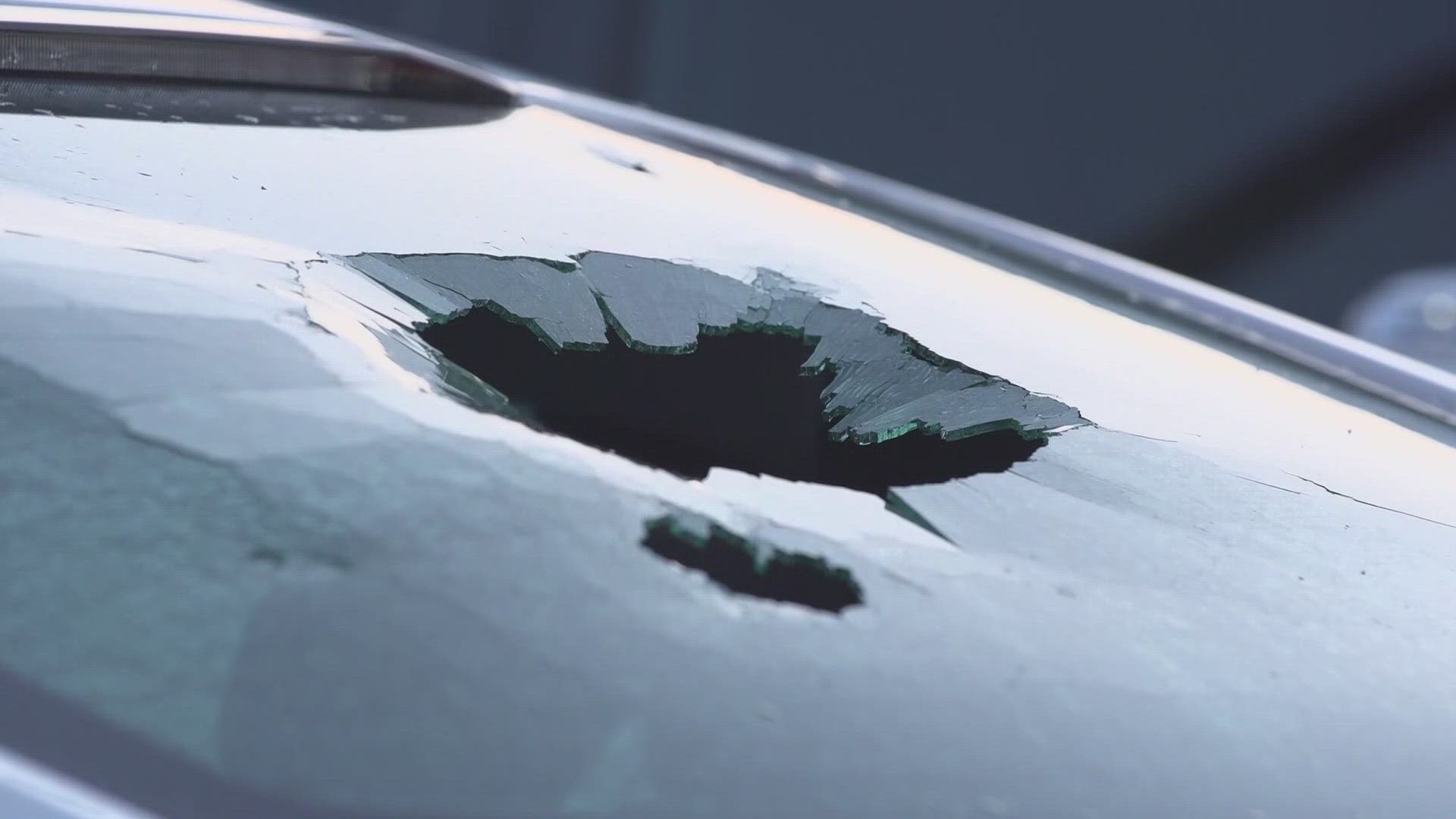DALLAS — Golf ball to softball-sized hail damaged hundreds of vehicles and roofs in DFW Sunday, prompting residents to file insurance claims and seek repair work Monday.
The Better Business Bureau and the Texas Department of Insurance offered advice to Texans with damaged property. Their recommendations can help strengthen your case for reimbursement and prevent you from falling prey to scammers.
As soon as you notice damage, call your insurance company, they said.
"If you've got a claim, chances are your neighbors do as well," TDI spokesperson Ben Gonzalez said. "It's all about getting in the queue."
Next, document damage with photographs, videos and notes. Make minor repairs that will prevent damage from worsening, such as tarping over holes or boarding up broken windows.
"Keep your receipts because those things may become part of your insurance claim," Gonzalez said. "Even those temporary repairs."
Residents should expect to schedule an appointment with an adjuster when they first call their insurer. These experts sometimes work virtually now, Gonzalez added.
But if an adjuster inspects damage in person, homeowners should effort to be present. That way, residents can point out problems that might not be obvious.
Do not throw away ruined furniture or belongings, even if they're wet, until your insurer tells you to. Move soggy items into the garage or outside so they can still be included in a damage report.
Do not make major repairs or hire a contractor until your insurer signs off.
"The major scams we see all come from that sense of urgency and the need to act now," Fort Worth Better Business Bureau regional director Amy Rasor said.
"A lot of times, folks will camp out when they know a storm is coming so they can be the first to knock on your door in the morning," she added. "Use caution. If they're knocking on your door at 7 a.m., that should be the first red flag."
Rasor recommends collecting several quotes from local businesses before hiring a contractor.
"Look at that reputation, read those reviews, and see who else has used them and what they have to say about them," Rasor said.
Get a final construction plan in writing and pay contracts in increments. Never pay a contractor's entire bill up front.
Deposit an insurer's check and pay workers directly from your account instead of signing over the payout straight to a contractor.
"Your mindset should be 'collecting,'" Rasor added. "I need to collect the information: What exactly has happened? What needs to be repaired? Then I collect those quotes and bids."
Gonzalez noted that people with damaged vehicles should take the same steps, but only if they have a comprehensive insurance policy. Liability insurance, the minimum coverage required in Texas, does not cover weather-related damage.

